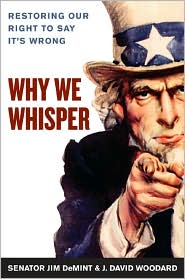Sol Sanders writes the "Asia Investor" column weekly for East-Asia-Intel.com.
Someone from the New York Times, in some circles the presumed voice of God, told us that the new globalized world was flat. He meant there was so much competition out there that to keep up with the rest of the human race you had to recognize that the old rules didn't apply any more.
Well, as they say, something happened on the way to forum.
It turns out the world is still round. It not only turns out that most of the old rules still apply. But that, furthermore — one more cliché — the mot is in our own eye. The threat to the system and livelihoods came not from all those new industrializing economies willing to work harder and to cut corners doing it, but from the bunch on Wall Street and in The City.
They believed they could substitute the digital revolution for common sense and human judgment. That's why they thought they could bundle up a bunch of mortgages whose dubious value they had no way of knowing, "securitarize" them, then take out leveraged insurance against their eventually doing what they naturally would do — turn into worthless paper. Going under the pseudo-financial name "derivatives", megachip machines were supposed to calculate all the risks and substitute logarithms for investment experience and prudent counsel.
Meanwhile, the non-American members of the new club convinced themselves that growing "intra-Asian" trade, self-aggrandizing bureaucrats in Brussels, and Russians selling inefficiently produced hydrocarbons into and oil and gas bubble, would go on forever.
But instead of a fuse from an incredibly corrupt Chinese financial system pulling down the whole "construct", as some of us had anticipated, it started at the other end of the world economy. And suddenly all the way to Dubai the world found out how dependent it was on the American economy and its genius, however temporarily fouled by the new yuppie clan in the counting houses.
The economists will be analyzing what happened for decades, hopefully long after most of its immediate effects have been cleaned up.
But in what is, indeed, a globalized world, the Wall Street debacle is having its effect on all the other problems with which the world has been living.
The newest immediate crisis, a rapacious Putin regime in Moscow invading its southern neighbor, is facing its own debacle. However much Putin's bravado was welcomed in nationalist circles, his own tycoons didn't like it.
The half trillion dollars in foreign reserves the Russians had accumulated in the inflated hydrocarbons markets is rapidly being trimmed. Some $200 billion has had to be thrown in bucking up the ruble and the local equity markets — and that won't be the end of it. One may well ask how Ras hopes to finance his proposed 27 percent increase in a defense budget, meant to frighten the world. There has been a flight of capital to the West with investors and the Russian oligarchs themselves sending their cash after their luxury homes in London and the Mediterranean. If oil prices — with a decelerating world economy — fall below $90 a barrel, the Russians will be in even more trouble while they dig deeper to keep the fragile post-Soviet economy equilibrium.
The Chinese, already beset with a multitude of problems which must be faced in the afterglow of an expensive but only ornamental Olympics, are facing lower growth rates. It had been taken as a rule of thumb that China had to keep growing at double digit rates of gross national product if increasing demands for employment were met in a society bereft of its old Marxist-Leninist-Maoist rationale. That won't be easy even with lower imported energy costs since the 75 percent of exports generated by the multinationals — which lead the economy — will now be under all kinds of new pressures including likely depressed American and EU consumer markets. The still budding scandal of milk products adulteration, while not a major financial drain, is again more evidence that systemic corruption has reached levels of economic concern and a further system of the loss of control over an authoritarian system by the monopoly Communist Party.
Japan, caught in a quiet but decisive and confused struggle over continuing former Prime Minister Junichiro Koizumi's revolutionary reform of the old 1950s regime's politics as well as its economics, now has to face new trials for an economy which might be slipping back into the decade of stagnation of the 90s. The Japanese have become increasing dependent on their and other multinationals' assembly operations in China, now its number one trading partner. But for all the talk of the growth of trade among the East Asian industrial economies, their ultimate overly heavy dependence on exports to markets in the U.S. and Europe is going to be crucial. Choosing a new prime minister in mid-September may be the smallest of the tests Tokyo faces what with a continuing declining population catastrophe, an internal debt that at least until now, has made the other industrial economies look good.
Even Australia, luxuriating in the world commodities boom with its growing exports of minerals and hydrocarbons, especially to China, suddenly feels the cold wind. Its dollar was climbing to parity with the U.S. dollar only a few weeks ago. But now the rippling effects of the Wall Street financial crisis are likely to be felt Down Under as well.
Singapore, trying to transform itself from the quintessential Nanny society into a painted lady, trying to replace its increasingly noncompetitive manufactures with tourism replete with casinos and car racing and other service industries, is going to find hard sledding into a more straightened world with tourist bucks, too, harder to come by.
How long and how difficult the adjustment to the fallout to the U.S, fiasco is going to be will depend, of course, on how quickly the Bush Administration in its dying months can put together at least a short-term fix. A trillion dollars in taxpayer supported buyouts for the decimated real estate market — what apparently at this writing in mid-September appears in the cards — may stem the atmosphere of foundering confidence and panic.
If there is any satisfaction for Americans in the perception, it is clear, again, as it has been since the end of World War II, and even more after the end of the Cold War, that the U.S. is not only the residual center of world stability. It is also clear that with all the talk of how much of the world's resources it consumes and how much the rest of the world is willing to pick up its IOUs, the American taxpayer is still the last pocket picked in fixing any world economic crisis.
--------------------------------------------------------------------------------
Sol W. Sanders, (solsanders@cox.net), is an Asian specialist with more than 25 years in the region, and a former correspondent for Business Week, U.S. News & World Report and United Press International. He writes weekly for World Tribune.com and East-Asia-Intel.com.
Monday, September 22, 2008
Subscribe to:
Post Comments (Atom)











No comments:
Post a Comment